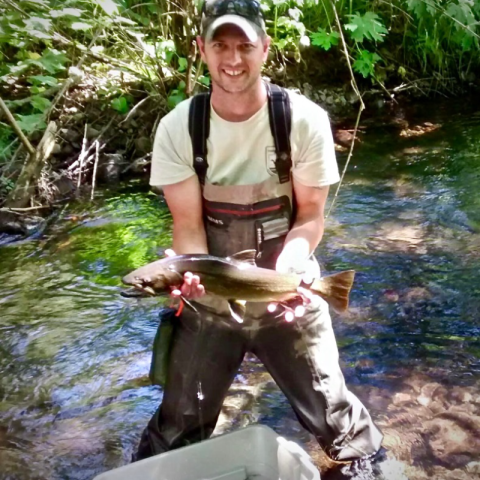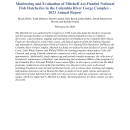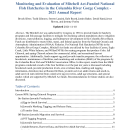
1211 SE Cardinal Ct
Suite 100
Vancouver, WA 98683
United States
About Kyle Beard
As part of the marking team Kyle operates much of the year on the road in one of the marking trailers doing automated, PIT and manual tagging of fish. Kyle visits the hatcheries throughout our region clipping adipose fins and tagging fish with CWT and PIT tags. During the fall he helps with biosampling and tag recovery at the Gorge Hatcheries. If time allows, Kyle also enjoys helping out with other projects around the office. One such project is the annual Walla Walla sampling trip, which he really enjoy; if it gets him in the field, he's happy.
Program: Hatchery Assessment, and Marking and Tagging
Current Projects:
1. Operating and managing mass marking trailers, including PIT-tagging and hand-marking
2. Bio-sampling, tag recovery and scale ageing of adult salmon returns
3. Updating CRiS database with information recovered from coded-wire tags
4. Coordinating outreach activities for the Marking program
5. Maintaining PIT-tag antennas and computers at hatchery fish ladders
Background: Kyle is a former Pathways intern and completed his BS in Earth and Environmental Science with a minor in Biology as Washington State University-Vancouver
At CRFWCO since: 2014

